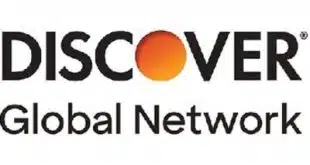The prepaid market has been upended and shrunk by the Consumer Financial Protection Bureau’s prepaid accounts rule.
Prepaid cards were a popular money-management tool for low-income Americans. And even though the cards never generated many complaints, the bureau decided they needed to be heavily regulated. Now, direct-to-consumer prepaid cards are being replaced by digital bank accounts offered by the same companies that once offered prepaid cards.
Examples abound. In January, Green Dot Corp., once one of the biggest providers of direct-to-consumer prepaid cards, launched “Go2Bank,” a digital bank account that offers access to payroll two days early, access to credit, and a high-interest savings account.
In June, Green Dot converted its Walmart money card from a prepaid product to a demand-deposit account product, saying in a press release the new product would help customers by offering more money-management tools, lower direct-deposit amounts to waive monthly fees, and overdraft protection up to $200.
Netspend last year created its own “All-Access Account,” which is a digital bank account that offers banking features. The company has had DDA products since 2017.
A little history can help explain why products are evolving this way. Despite being in development since 2012, the prepaid rule only went into effect in 2019. Early versions appeared to apply primarily to disclosures for general-purpose reloadable cards sold directly to consumers. Gift cards had been covered already by provisions of the Credit Card Accountability Responsibility and Disclosure Act of 2009. And the Federal Reserve had given full Regulation E protection to payroll cards as of July 2007.
But instead of focusing on disclosure, the final rule tried to cover every possible type of consumer payment, while remaining vague about what a prepaid account is. It does specify that person-to-person products and mobile wallets that store money are included, but it adds the traditional pooled-account structure need not be present for an account to be considered prepaid.
Nonetheless, virtually every deposit-focused fintech launched in recent years has avoided being prepaid and worked to make sure customers (and regulators) know it offers a DDA. So-called neobanks like Chime, Dave, Revolut, N26, and Robinhood have largely avoided the regulatory scrutiny the prepaid industry faced. They have also escaped the ire of consumer advocates, who decry every prepaid program that offers an overdraft option, but who ignore or cheer on digital-banking apps that do.
The rule went into effect in April 2019. In December, PayPal filed a lawsuit alleging the rule “requires PayPal to make misleading and confusing disclosures about the fees and functionalities of its products and places unreasonable restrictions on consumers’ abilities to link certain credit products to their PayPal accounts.”
On Dec. 30, 2020, Judge Richard Leon of the U.S. District Court for the District of Columbia handed down a summary judgment in the case. The ruling on its face was narrow, but it deregulated a lot of financial services. Whether it will hold up on appeal adds an element of uncertainty for the industry.
A road paved with good intentions can lead to a dark place. The CFPB in effect picked winners and losers by placing heavier requirements on prepaid deposit products, while limiting their ability to earn revenue by restricting their scope to offer credit. Meanwhile, the bureau has not, to date, scrutinized the new products that came up in the market. The problem is that consumers who feel prepaid is a better option find themselves with fewer choices.
The lesson? Policymakers should consider rules that create a level playing field for all deposit products and give consumers an equal level of protection and access.
— Ben Jackson, bjackson@ipa.org




